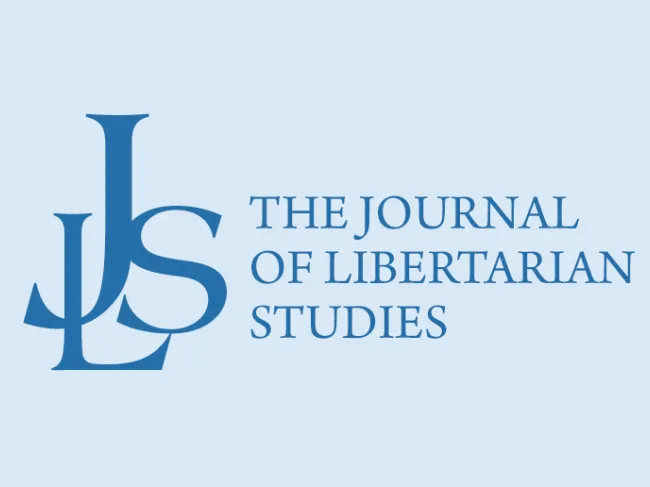- COMMON PROPERTY IN ANARCHO-CAPITALISM by Randall G. Holcombe. Speculation on the nature of anarcho-capitalism has typically proceeded under the assumption that all property in anarcho-capitalism would be privately owned...
- IS LOOKISM UNJUST?: THE ETHICS OF AESTHETICS AND PUBLIC POLICY IMPLICATIONS by Louis Tietje and Steven Cresap. Lookism is prejudice toward people because of their appearance. It has been receiving increasing attention, and it is becoming an important equal-opportunity issue...
- THE HABERMASIAN MOMENT by Paul Gottfried. Among spokesmen for the Post-Marxist Left, Jürgen Habermas (1923–) may be the most prominent and, in his own country, the most honored. An advocate of “militant” democracy since the 1950s...
- QUOD OMNES TANGIT: CONSENT THEORY IN THE RADICAL LIBERTARIAN TRADITION IN THE MIDDLE AGES by Carl Watner. The origin of natural rights thinking and “the doctrine of consent . . . [are] drawn from a long tradition in ancient and medieval thought.” In fact, the idea of consent played “an increasingly important role” in political, legal, and religious thought during the Middle Ages...
- ARCHIPELAGOS OF EDUCATIONAL CHAOS by Benjamin Marks. The defense of government schooling, like government itself, is based on fallacies. In this article, I directly refute many of the main arguments for government schooling...
- RESTORING THE LOST CONSTITUTION by Randy E. Barnett, reviewed by J.H. Huebert. Randy Barnett is among the world’s leading libertarian academics and lawyers. In fact, Mr. Barnett has defended anarcho-capitalism in these very pages, which makes his most recent book most curious. In it, he attempts to legitimate the United States government . . .
Journal of Libertarian Studies 19, no. 2 (Spring 2005)

All Rights Reserved ©


